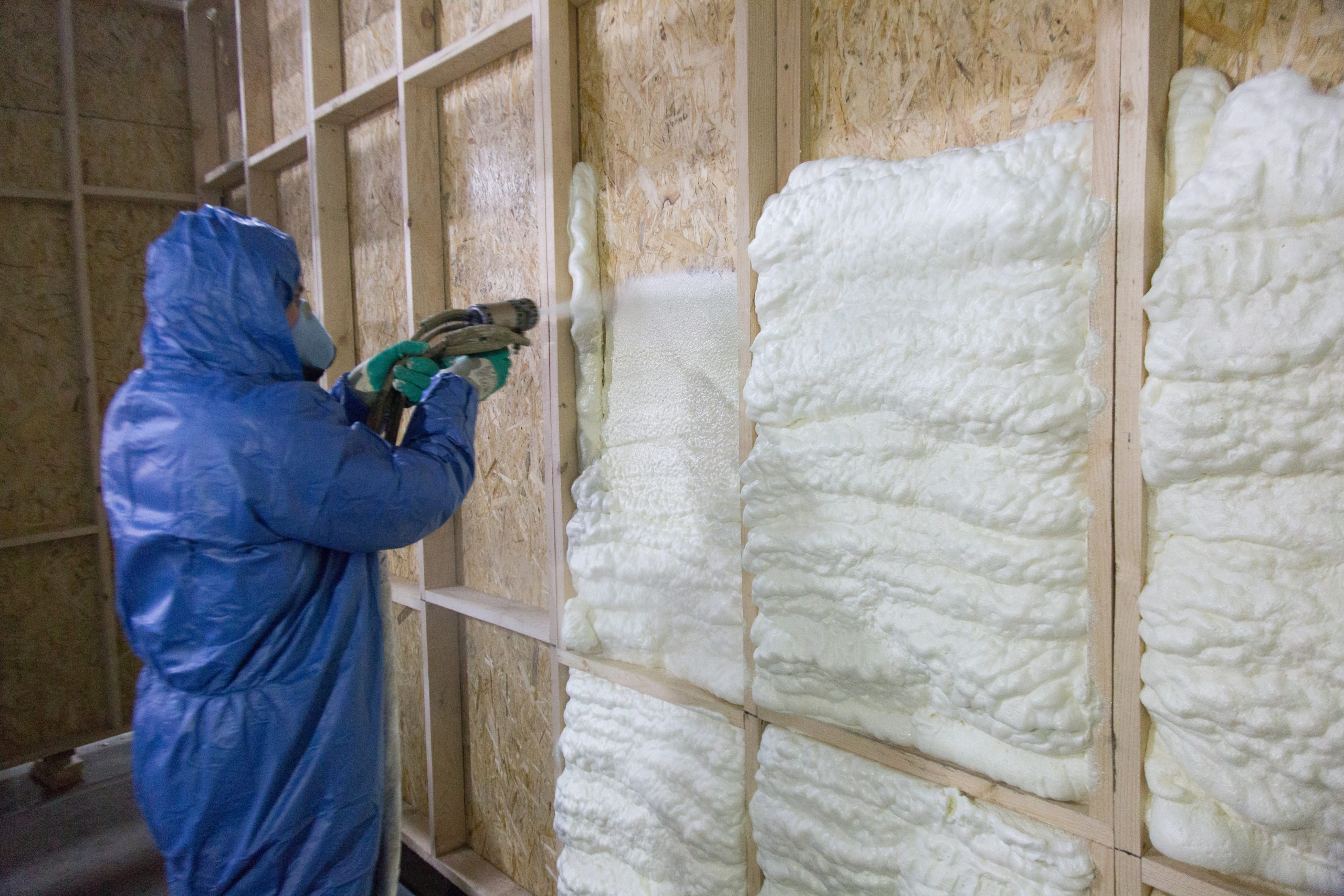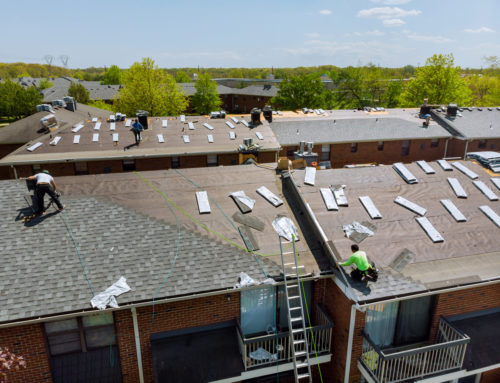Spray polyurethane foam offers the following advantages, increasing your ROI on the installation fee.
1. Higher R-Values
Spray foam insulation boasts the highest R-value, or insulating power, among all insulation methods. Closed-cell foam has an R-value of around 6.5 to 7 per inch. Since the foam retains its shape, it’s more solid and offers higher resistance to heat.
Open-cell foam is spongier and less dense than its closed-cell counterpart, so it has a lower R-value. Even then, its R-value of 3.8 per inch is still similar to the rating of popular insulating materials like fiberglass batts and loose cellulose.
Make sure to have a spray foam insulation contractor do the installation for you. This method requires specialized tools and skills to ensure that the insulation performs as it should.
2. Air and Moisture Barrier
Polyurethane spray foam pushes itself into the tiniest spaces and crevices, sealing all air and moisture leaks. Other types of insulation, like blanket or foam board, don’t have this capability.
This air and moisture barrier makes spray foam insulation even more effective at reducing your energy consumption. By air-sealing your home, this form of insulation prevents heat loss due to drafts. Air-sealing can save you up to 15 percent of your heating and cooling costs, according to the Environmental Protection Agency.
On top of providing a solid, impervious barrier, spray foam insulation is also resistant to water. The foam retains its properties no matter how wet it gets, unlike other insulation materials that need to be replaced immediately when they get wet.
3. Better Indoor Air Quality
One of the benefits of polyurethane spray foam is better indoor air quality. Because the foam seals all cracks and crevices, it doesn’t allow unwanted outside air to flow into the house. This reduces the chances of the breeze carrying pollen and allergens into your room, which is a huge advantage if you’re living with someone with allergies or respiratory conditions.
Spray foam insulation can also protect your house from pest infestation. Bugs, insects, and small rodents can’t get into your home since the gaps in the floors, ceiling, and walls are barricaded by the foam. Spray foam can also help to minimizes the growth of mold and mildew. Since the material is water-resistant, the foam prevents moisture build-up, which is exactly what mildew needs to grow.
4. Enhanced Structural Integrity
With its density and hardness, closed-cell foam insulation can fortify the structure of your house. Spray foam insulation adheres to surfaces, enhancing the structure’s overall integrity. For example by insulating your attic you can help your roof and ceiling become more resistant to storms and extreme weather conditions.
Also some types of spray foam insulation offer fire resistance. There are foam insulation applications that are fire retardant. This means the insulation material slows down the spread of flames, which prevents fire from growing. This fire-resistant property is especially helpful in locations that experience a lot of wildfires.
Save On Heating and Cooling Costs & Reduces Energy Bills
Making smart decisions about your home can have a big effect on your utility bills and your comfort. Start the process by scheduling a free Energy Consultation with Superior Insulation Services a division of Superior Improvements Group.





